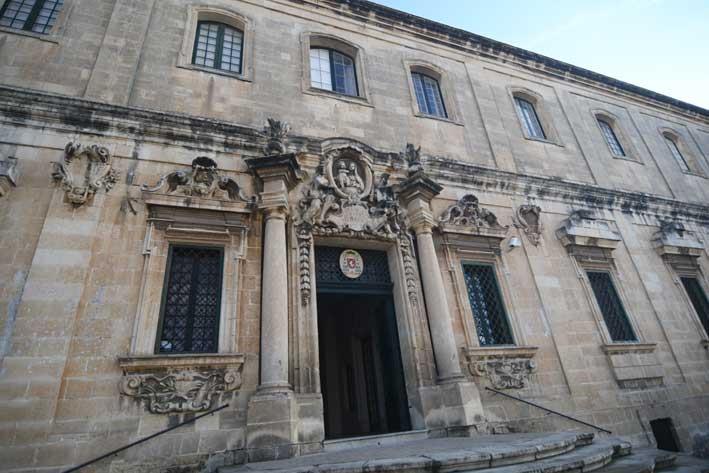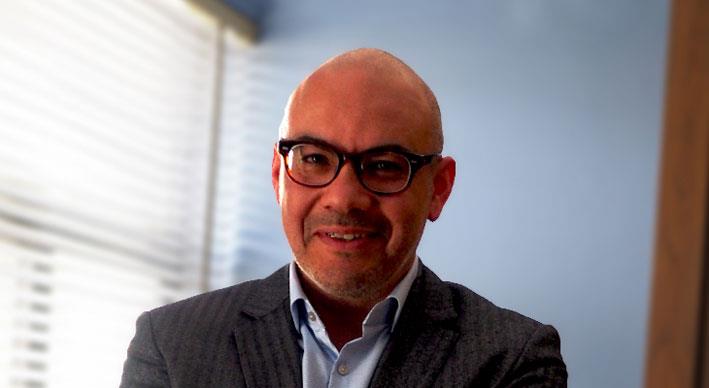Malta is not a Catholic country, but an increasingly secular one that values individual choices, Roger Tirazona, chairperson of the Malta Humanist Association, has said.
His comment followed a question put to him by The Malta Independent on Sunday about the 2017 census on attendance to Sunday Mass in Malta, which showed a steady decline. The census also showed that Sunday Mass attendance is projected to decline further until it bottoms out to zero in 2050.
Tirazona says that we are witnessing the symptoms of a paradigm shift in the moral landscape in Malta. "These statistics cannot be ignored and cannot be seen in isolation either. I do not think that this is merely a question of the Church's 'marketing strategy' either."
"Let us not forget that over the past decade Malta has legalised rights that do not adhere to any one doctrine, but which are instead founded on secular, humanist values of ethical reasoning and science." Tirazona refers to divorce and gay marriage as examples.
"It is very difficult for me to understand, given these statistics and legal paradigm shift taking place in Malta, how one could say 'Malta is a Catholic country' in 2019, and if the Constitution is saying it in Article 2, it certainly needs revising. Likewise for any concordats that are putting Malta in collusion with a single religion. Malta is not a Catholic country, but an increasingly secular one, that values individual, personal choices."
Past statistics have already shown dissent among Catholics, even at an international level, Tirazona continues. He also makes reference to the percentage of women who identify as Catholic but make use of contraceptives that are not approved by Church doctrine.
Seeing that belief in God is still high, but church attendance is low, it can also be interpreted as people choosing to see their faith as a personal affair, he explains.
"Many Catholics that I know feel that their faith is something between them and their God, and there is no need for an institution or organisation."
Tirazona says that the Church sex and child abuse scandals were extremely unhelpful. "No matter how much forgiveness Church officials beg for, these scandals and their concealment by the Church were taken very badly on a global scale.
"The Church is no longer seen as having any sort of moral high ground, to claim infallibility with respect to moral teaching. Only recently we have received the news that ethics teaching in schools is increasingly in demand, including by children of Maltese citizens who describe themselves as Catholic. So even in our education, where moral teaching was once the monopoly of the Catholic Church, there is diversification.
"What I find is important, however, and what I focus on as a humanist, is not religion declining. I have no problem with religious people. What is important to me is the impartiality that the state, the judiciary, our constitution and laws, should have towards all religions and atheism.
"We should all be treated equally and given the liberty that a democracy can give to all of us, irrespective of creed or life-stance. This will also happen gradually but we must see to it that it continues. This is what secularism is after all, and it is a guarantee that all religions have their freedoms, and not a threat to religions."

Pastoral plan to focus on a new evangelisation supported by works of charity - Curia
The Curia, reacting to the predicted number of people attending Mass in the future, said that the decline is based on the assumption that nothing is being done to counteract the situation recorded in 2017.
The research carried out by the Archdiocese of Malta was discussed during the parish priests' live-in which was held earlier this month, and will now be analysed by the respective parishes and with members of the parish pastoral councils, the Curia explained.
In order to be pastorally effective collectively, there will be a pastoral plan which focuses on a new evangelisation, supported by works of charity. These include several church initiatives which assist the poor, the sick and the most vulnerable in society.
The Church will also rely on the authentic witness of Catholics and on the power of prayer, to bring the good news to others. These include the younger generations who will remain the main focus for the Church as witnessed during the last Synod of Bishops dedicated entirely to young people and faith, as well as last week's World Youth Day celebrations in Panama led by Pope Francis.
One of the main factors for the decline is a reduction in the number of services - Attard parish priest
At 47.9 per cent, the attendance in the locality of Attard was significantly higher than the average in Malta. When contacted, Attard parish priest Fr Noel Vassallo said that one of the main factors for having a high percentage is the number of services.
He said that the Church is in the process of carrying out an analysis of the census results, although it may take a while since it depends on a number of factors, including the number of services.
Vassallo said that, as is happening in a number of parishes, that the Attard parish church will have to reduce the number of services. If people are not comfortable with the times of the services, the number of attendees could decrease.
"Although an analysis still needs to take place, factors for the reduction in Mass attendance do not only depend on the organisation, but also on society's need to attend Mass. It is still too early to conclude on what needs to be done."

Change in religious practice, not change in religious belief - anthropologist
Professor Mark Anthony Falzon, an anthropologist and associate professor at the University of Malta, said that the numbers from the census suggest that while Sunday Mass attendance is going down, 95 per cent of the population believe in God and 92 per cent identify as Catholics.
"A caveat is in order here, because while that for Sunday Mass attendance is a relatively straightforward statistic which measures practice (you either go or don't), that for belief in God is an infinitely more complicated one."
Falzon believes that that we are not looking at a decline in religious belief, but rather a change in what people do with their beliefs - a change in religious practice.
He explains that the reason for the falling numbers is actually quite simple. "Until recently, and for most people, social life had something or other to do with religion and churchgoing. For example, I know very many couples over 60 who met at the Legion of Mary, or on the parvis after Sunday Mass, and so on. For most people, there was little else to do.
"Rising standards of living, and a consumer society, mean, first, that people have more choice over how to spend their time and, second, that they are likely to spend it consuming something or other. It is curious in this respect that the types of religious practice that involve consumption - feasts, weddings, and such - do not appear to have declined much."
Falzon also noted that the projections as provided in the census are not very useful. He said it does not follow that, since 58 per cent of people who attend Sunday Mass are over the age of 50, that figure will drop as today's younger people (for whom attendance rates are much lower) get older. This is because religious practice can and does change throughout the life course. In other words, today's lapsed Catholics may become tomorrow's churchgoers.
"Certainly I don't think that the results are due to the Church as an institution, and the Liturgy, being 'out of touch', 'old-fashioned', or the other nonsense we hear so often. The Liturgy is a ritual, and 'out of touch', so to say, is exactly what ritual should be. I suppose the point of going to church is to experience something different, something that's 'out of touch.'"